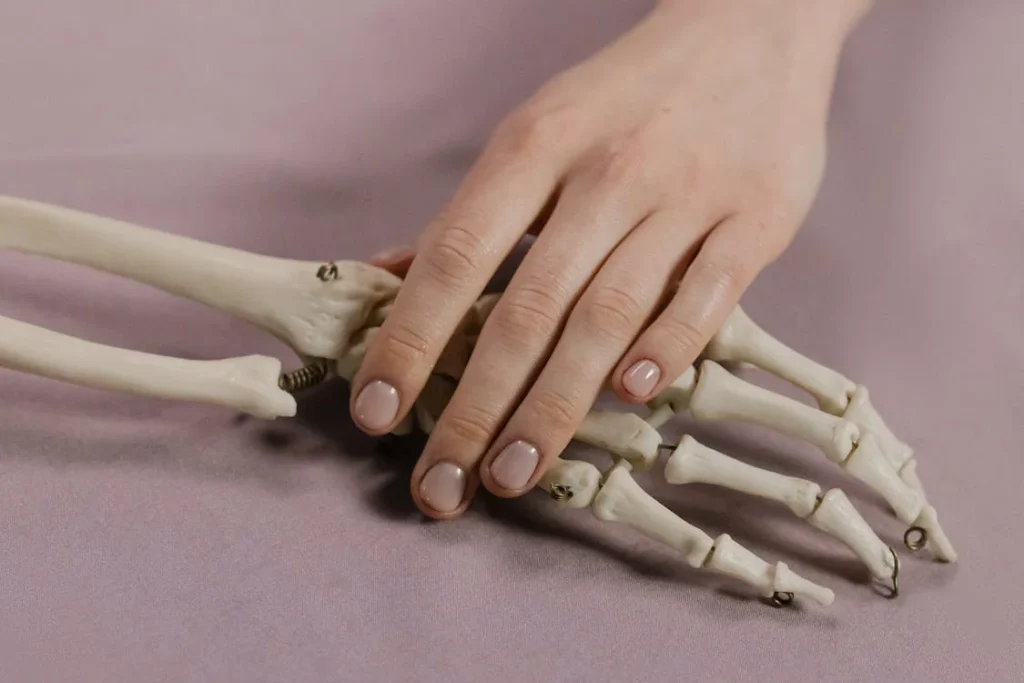Bone health is something many people don’t think about until they face a problem. For amputees, keeping bones strong is even more important. Losing a limb changes how the body works. It affects balance, posture, and the way the remaining bones handle weight. Over time, this can lead to bone loss, weakness, and even fractures.
Calcium and vitamin D play a big role in keeping bones healthy. Without them, bones can become brittle and weak. This is especially true for amputees, who put extra stress on their remaining limbs. If bones are not strong, it can make movement harder and increase the risk of injury.
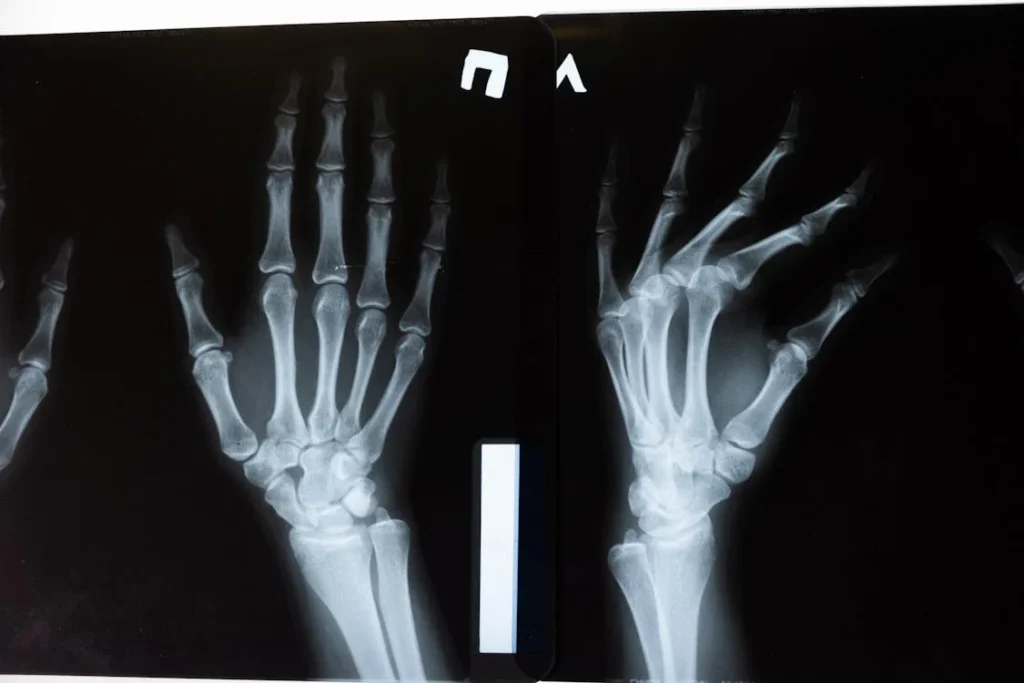
Why Amputees Need Strong Bones
Bone health is important for everyone, but for amputees, it becomes even more critical. When a limb is lost, the body undergoes major changes. The remaining bones have to bear extra weight and pressure, which can make them wear down faster.
Over time, this can lead to conditions like osteoporosis, fractures, and joint problems. Understanding why this happens is the first step toward protecting your bones and maintaining a healthy, active lifestyle.
How Bone Loss Happens After Amputation
When a limb is removed, the bones in the residual limb lose some of their normal function. Without regular use, bones can weaken. This is similar to what happens when someone is bedridden for a long time—their bones lose density because they are not being used the way they should be.
After amputation, the affected bones experience a decrease in load-bearing activity. This process, called disuse osteoporosis, makes bones more fragile.
The remaining limbs also undergo significant stress. For example, a person with a leg amputation relies heavily on the other leg for movement. This increased load can cause the bones in the remaining leg to weaken over time, making them more prone to fractures.
For upper-limb amputees, the situation is similar. If one arm is missing, the other arm does extra work, which can strain the shoulder and wrist joints, making them vulnerable to damage.
Changes in mobility also play a role. Many amputees use prosthetic devices to regain movement, but improper use or poorly fitted prosthetics can create uneven weight distribution. This can put unnecessary pressure on certain bones, leading to discomfort, pain, and, eventually, bone deterioration.
Calcium: The Foundation of Strong Bones
Calcium is one of the most important nutrients for bone health. It helps keep bones dense and strong, reducing the risk of fractures. When the body doesn’t get enough calcium, it pulls calcium from the bones, making them weaker over time. For amputees, this can be dangerous because their bones are already under extra strain.
A common problem among amputees is not getting enough calcium in their diet. Many people believe that drinking milk alone is enough, but calcium needs to come from a variety of sources.
Foods like leafy green vegetables, almonds, tofu, and dairy products are excellent sources of calcium. In some cases, calcium supplements may be necessary, especially if a doctor determines that dietary intake is not enough.
The body also needs other nutrients to properly use calcium. Magnesium and vitamin K help calcium do its job, making bones stronger and more resistant to fractures. Without these supporting nutrients, even a high-calcium diet may not be effective.
Vitamin D: The Key to Calcium Absorption
Calcium alone is not enough to keep bones strong. The body needs vitamin D to absorb calcium properly. Without enough vitamin D, even a calcium-rich diet won’t prevent bone loss. This is why vitamin D deficiency is a major concern, especially for amputees who need strong bones to support their mobility.
The best source of vitamin D is sunlight. When the skin is exposed to the sun, the body naturally produces vitamin D. However, many people don’t get enough sunlight due to indoor lifestyles, cloudy weather, or wearing clothing that covers most of the skin.
This makes it necessary to get vitamin D from food or supplements. Foods like fatty fish, egg yolks, and fortified dairy products contain vitamin D, but for many people, supplements are the best way to ensure adequate intake.
Vitamin D also plays a role in muscle function. Strong muscles support the bones and reduce the risk of falls and injuries. For amputees, maintaining muscle strength is crucial for balance and mobility.
A lack of vitamin D can lead to muscle weakness, making daily activities more challenging and increasing the risk of fractures.
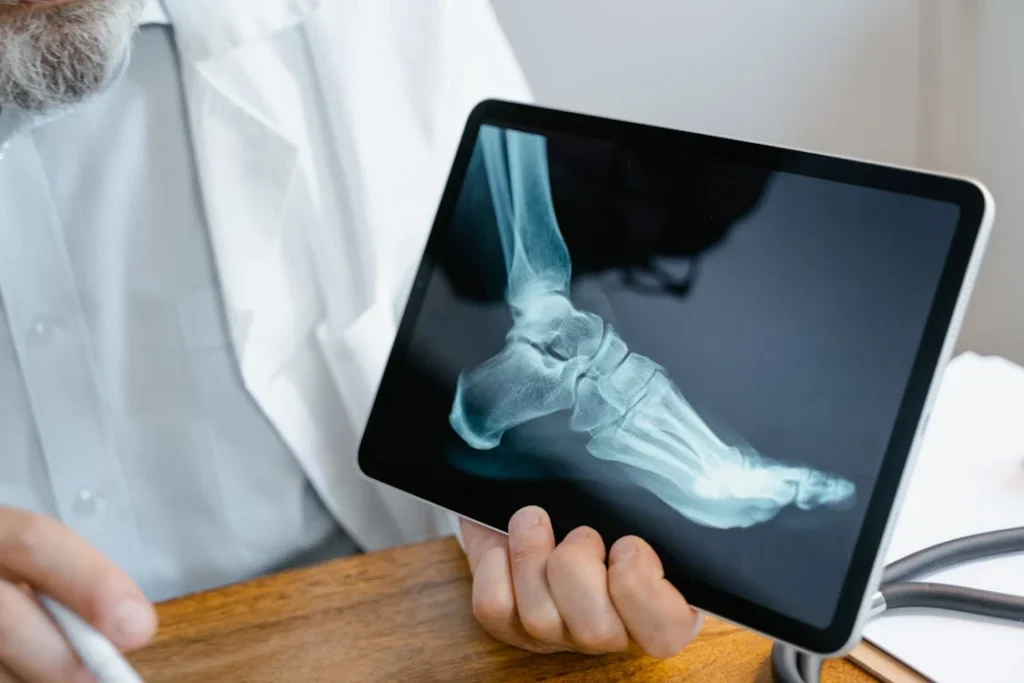
The Long-Term Effects of Poor Bone Health in Amputees
Neglecting bone health can lead to serious long-term consequences for amputees. Since their bodies undergo extra strain due to the loss of a limb, weak bones can make mobility more difficult and even painful.
The most common issues include osteoporosis, stress fractures, joint pain, and difficulty using prosthetics effectively. These complications can interfere with daily life, making simple activities such as walking, standing, or even using assistive devices much harder.
Osteoporosis and Bone Density Loss
One of the biggest risks amputees face is osteoporosis, a condition where bones become weak and brittle. Because the bones in the residual limb are not used as much as they were before amputation, they lose density over time.
This makes them more fragile and more likely to break, even from minor falls or impacts. The remaining limbs, which bear the majority of the body’s weight, are also at risk. Excessive stress on these bones can accelerate bone loss, making fractures a real possibility.
Osteoporosis does not happen overnight. It develops gradually, often without any noticeable symptoms until a fracture occurs. That is why amputees must take proactive steps to prevent bone loss early on.
Regular bone density tests can help monitor bone health and detect issues before they become serious. Doctors can recommend lifestyle changes, dietary adjustments, or medications to slow down the process and keep bones strong.
The Risk of Stress Fractures
Amputees, especially those who rely heavily on their remaining limbs, are at risk of stress fractures. These are small cracks in the bone that develop over time due to repeated strain.
Unlike fractures caused by accidents, stress fractures build up slowly, often starting as mild discomfort before turning into severe pain.
Leg amputees are more likely to experience stress fractures in their remaining leg because of the extra weight it carries. Using a prosthetic that is not well-fitted can also add to the problem by creating an uneven gait.
Over time, this can lead to persistent pain, swelling, and even fractures that require long recovery periods.
Upper-limb amputees are not exempt from this issue either. If one arm is missing, the other arm takes on extra work, whether it’s lifting, carrying, or even pushing a wheelchair.
The added strain can lead to stress fractures in the wrist, shoulder, or elbow, making everyday tasks more painful and difficult.
Joint Pain and Mobility Issues
Bones and joints work together to support movement. When bones become weak, it puts extra pressure on the joints, leading to pain and stiffness. This is a common issue among amputees, as their remaining joints bear more stress than usual. Over time, this can lead to arthritis, inflammation, and a reduced range of motion.
For amputees using prosthetics, joint pain can make it harder to wear and use their devices comfortably. A prosthetic limb should feel like a natural extension of the body, but weak bones and joint pain can make this difficult.
This may cause some individuals to avoid wearing their prosthetics altogether, leading to further muscle loss and decreased mobility.
Strengthening bones through proper nutrition and weight-bearing exercises can help prevent joint pain. When bones are strong, they provide better support for the joints, reducing the strain that leads to discomfort.
How Poor Bone Health Affects Prosthetic Use
Prosthetic limbs rely on the body’s natural strength and balance to function properly. Weak bones make it harder to maintain stability, which affects how well an amputee can use their prosthetic. For example, if the residual limb has lost significant bone density, it may not be able to support the weight of a prosthetic device comfortably.
This can lead to pressure sores, irritation, and pain, making it more challenging to wear the prosthetic for extended periods.
Additionally, if the remaining limb becomes weak due to bone loss, it may struggle to provide the necessary support for movement. This can make walking more difficult, increasing the risk of falls and injuries.
A well-balanced diet rich in calcium and vitamin D, combined with proper exercise, helps ensure that bones remain strong enough to support prosthetic use.
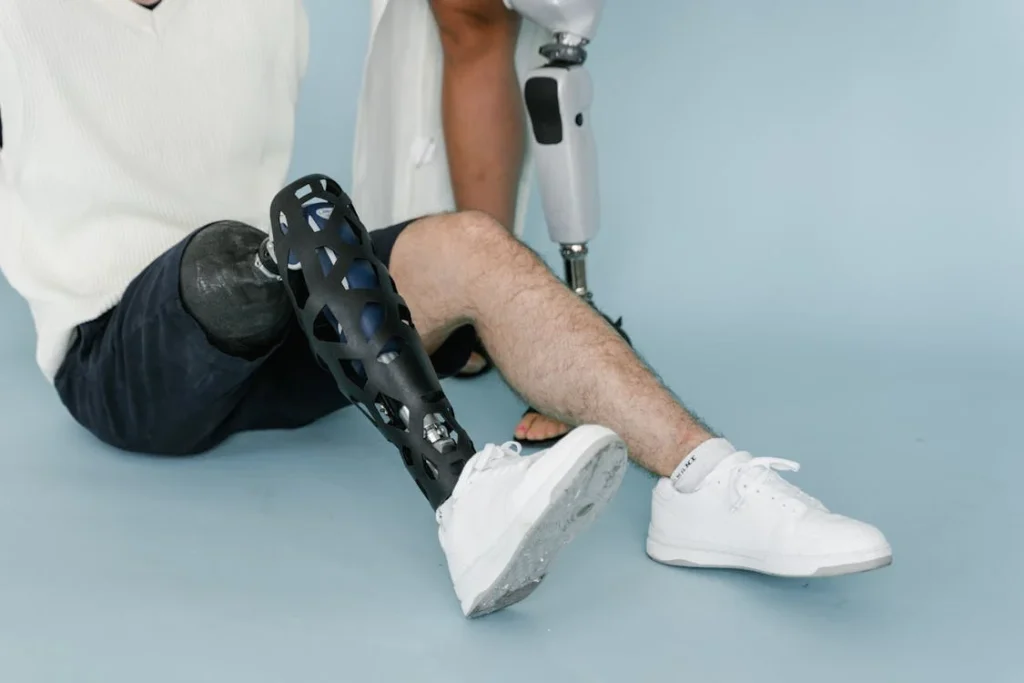
How Amputees Can Improve Bone Health
Maintaining strong bones requires a combination of good nutrition, regular exercise, and healthy lifestyle habits. Amputees face unique challenges when it comes to bone health, but with the right approach, they can keep their bones strong and reduce the risk of fractures, pain, and mobility iss
ues. By focusing on diet, movement, and medical care, amputees can improve their overall well-being and continue leading an active, independent life.
The Role of Diet in Bone Health
Eating the right foods is the foundation of strong bones. Calcium and vitamin D are the two most important nutrients for bone strength, but they are not the only ones that matter.
Magnesium, phosphorus, and vitamin K also play key roles in maintaining bone density and helping the body absorb calcium properly.
For amputees, getting enough calcium is essential. Dairy products like milk, cheese, and yogurt are excellent sources of calcium, but there are plenty of non-dairy options as well.
Leafy greens such as spinach, kale, and bok choy provide a natural source of calcium. Other foods like almonds, tofu, and fortified plant-based milk also help increase calcium intake.
Vitamin D is equally important because it helps the body absorb calcium efficiently. Sunlight exposure is the best way to get vitamin D naturally, but for those who spend a lot of time indoors or live in areas with little sunlight, food sources and supplements are necessary.
Fatty fish like salmon and mackerel, egg yolks, and fortified cereals can help increase vitamin D levels.
Protein is another key factor in bone health. While bones are mostly made of minerals, they also contain protein, which helps keep them strong and flexible.
Eating enough lean protein from sources like poultry, fish, beans, and nuts supports overall bone structure. However, consuming too much protein without enough calcium can lead to calcium loss, so a balanced diet is crucial.
The Importance of Weight-Bearing Exercise
Exercise is one of the most effective ways to keep bones strong. Weight-bearing exercises help stimulate bone growth and prevent bone loss. Since amputees may have limited mobility, they need to find exercises that work for their specific needs. Even with a prosthetic limb, there are many ways to incorporate movement into daily life.
For those with leg amputations, standing and walking with a prosthetic are excellent weight-bearing activities. Using parallel bars or a walker can provide extra support while strengthening the bones in the remaining limb.
Some amputees may benefit from low-impact exercises such as swimming, cycling, or seated strength training, which help maintain muscle mass and prevent bone loss without putting too much stress on the joints.
Upper-limb amputees can engage in resistance training using bands, light weights, or even bodyweight exercises to maintain bone strength in the arms, shoulders, and back.
Activities like yoga and Pilates also help improve posture, balance, and flexibility, reducing the risk of falls and injuries.
Why Posture and Balance Matter
Maintaining good posture is essential for amputees, as it helps distribute weight evenly and prevents unnecessary strain on bones and joints. Poor posture can lead to uneven weight distribution, which can weaken bones over time.
Physical therapy and core-strengthening exercises can help amputees maintain proper alignment and reduce the risk of bone-related problems.
Balance training is also important. Since amputees rely on their remaining limbs for support, improving balance can reduce the risk of falls and injuries.
Simple exercises like standing on one leg (with support if needed) or practicing shifting weight from side to side can help build stability and confidence in movement.
The Role of Medical Check-Ups in Bone Health
Regular medical check-ups play a crucial role in maintaining bone health. Amputees should schedule routine visits with their doctor to monitor bone density and check for signs of osteoporosis.
Bone density scans can help detect early signs of bone loss, allowing for early intervention before fractures or other complications occur.
Doctors may recommend calcium or vitamin D supplements if dietary intake is insufficient. They may also suggest medications to strengthen bones in cases where bone loss has already started.
Physical therapists and prosthetists can help ensure that prosthetic devices fit correctly and do not put unnecessary stress on the bones.
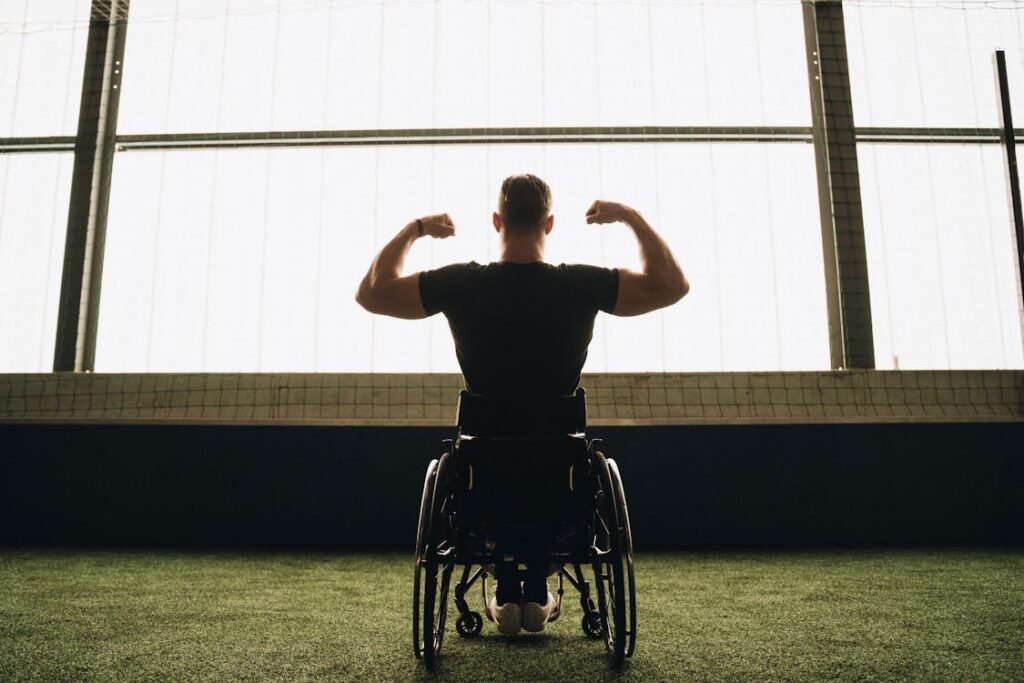
Lifestyle Habits That Support Strong Bones
Beyond diet and exercise, daily habits and lifestyle choices play a big role in keeping bones healthy. Amputees need to be especially mindful of how their lifestyle affects their bone density and overall well-being.
Small changes in daily routines can make a significant difference in preventing bone loss and reducing the risk of fractures.
The Impact of Smoking and Alcohol on Bone Health
Smoking is one of the worst habits for bone health. It reduces blood flow to the bones, slows down bone formation, and increases the risk of fractures.
For amputees, who already face challenges with bone strength, smoking can make the problem even worse. It also affects circulation, which can slow down healing after injuries or surgeries.
Quitting smoking is one of the best things amputees can do to protect their bones and improve overall health.
Alcohol consumption also affects bone health. Drinking too much alcohol interferes with the body’s ability to absorb calcium and vitamin D, leading to weaker bones.
It also increases the risk of falls, which can be dangerous for amputees who rely on balance and coordination for mobility. While moderate alcohol consumption may not cause significant harm, heavy drinking should be avoided to protect bone density.
Managing Weight for Better Bone Support
Maintaining a healthy weight is crucial for bone health. Being underweight increases the risk of osteoporosis and fractures because there is less bone mass to support the body. On the other hand, being overweight puts extra strain on the bones and joints, increasing the risk of stress fractures and arthritis.
For leg amputees, extra weight can make mobility more difficult and put excessive pressure on the remaining limb. This can speed up bone loss and make walking with a prosthetic harder. A balanced diet combined with regular exercise can help maintain a healthy weight and protect bone strength.
Getting Enough Sleep for Bone Regeneration
Sleep is essential for overall health, including bone regeneration. During sleep, the body repairs and rebuilds bone tissue. Poor sleep habits or not getting enough rest can slow down this process, making bones weaker over time.
Amputees who experience pain or discomfort at night should find a sleeping position that reduces pressure on their residual limb. Using supportive pillows or adjusting the sleeping surface can help improve comfort and promote better sleep.
If sleep problems persist, consulting a doctor can help identify solutions to improve rest and recovery.
Stress and Its Effect on Bone Health
Chronic stress can lead to increased levels of cortisol, a hormone that weakens bones over time. High-stress levels also make it harder to maintain healthy habits, such as eating well, exercising, and getting enough sleep.
Amputees who experience stress due to lifestyle changes or mobility challenges should find ways to manage it effectively.
Relaxation techniques such as meditation, deep breathing, or spending time outdoors can help reduce stress. Engaging in hobbies, socializing with friends and family, or participating in support groups can also improve mental well-being.
Lowering stress levels not only benefits emotional health but also helps protect bone strength in the long run.
Hydration and Bone Health
Drinking enough water is often overlooked when it comes to bone health, but it plays a key role. Dehydration can make bones more brittle and increase the risk of fractures.
Water also helps transport nutrients like calcium and vitamin D throughout the body, ensuring that bones get the nourishment they need.
Amputees who are physically active or use prosthetics should be especially mindful of staying hydrated.
Sweating during physical activity can lead to fluid loss, so drinking enough water throughout the day is important. Avoiding excessive caffeine and sugary drinks can also help maintain proper hydration levels.

Practical Steps to Strengthen Bones Every Day
Building and maintaining strong bones is a daily commitment. Amputees can take simple yet effective steps each day to support bone health, improve mobility, and reduce the risk of fractures. By making small adjustments in nutrition, movement, and lifestyle, they can significantly enhance their quality of life.
Start the Day with a Bone-Boosting Breakfast
The first meal of the day should provide key nutrients that support bone health. A good breakfast could include calcium-rich options such as yogurt, fortified cereals, or almond butter on whole-grain toast.
Adding vitamin D sources, like eggs or fortified orange juice, can help improve calcium absorption. For those who prefer plant-based options, a smoothie with leafy greens, tofu, and plant-based milk can provide an excellent bone-friendly start to the day.
Hydration is also essential. A glass of water in the morning helps the body stay hydrated, which is important for nutrient transportation and bone repair. Avoiding sugary or caffeinated drinks early in the morning can help maintain hydration levels without draining essential minerals from the body.
Incorporate Movement into Daily Life
Even if a full workout is not possible every day, small movements can help strengthen bones. For leg amputees, standing for short periods, walking with a well-fitted prosthetic, or engaging in seated leg lifts can improve bone density.
For upper-limb amputees, stretching, resistance band exercises, and core-strengthening movements can support overall bone health.
Throughout the day, simple activities like standing up while talking on the phone, shifting weight from side to side, or using a stability ball for sitting can engage bones and muscles. For those with limited mobility, arm and leg stretches can still stimulate bone health and prevent stiffness.
Sunlight Exposure for Natural Vitamin D
Since vitamin D is essential for calcium absorption, spending time in the sun is a simple yet powerful way to strengthen bones. Even 15 to 20 minutes of sunlight on the skin can help the body produce enough vitamin D.
For amputees who may not get outside as often, sitting near a sunny window or taking short walks outdoors can help.
If sunlight exposure is limited due to weather or lifestyle, adding vitamin D-rich foods to meals or taking a supplement can ensure the body gets enough of this essential nutrient. A doctor can recommend the right dosage based on individual needs.
Adjusting Prosthetics for Comfort and Support
A poorly fitted prosthetic can lead to uneven weight distribution, causing stress on bones and joints. Regular check-ups with a prosthetist ensure that the device fits properly and supports the body in the best way possible.
Pain, pressure sores, or discomfort are signs that adjustments may be needed.
Proper prosthetic use not only improves mobility but also prevents unnecessary strain on bones. Learning how to walk, stand, and move correctly with a prosthetic device can prevent stress fractures and long-term bone loss.
Rehabilitation programs that focus on balance and posture can also help amputees move with confidence while protecting their bone health.
Ending the Day with Recovery and Relaxation
At the end of the day, focusing on recovery is just as important as staying active. A warm bath, gentle stretching, or light massage can help relax the muscles and improve circulation to the bones.
Practicing deep breathing or mindfulness before bed can also help lower stress, which indirectly benefits bone health.
Getting enough sleep is essential because bone repair and regeneration happen during rest. Amputees should aim for at least seven to eight hours of sleep each night to allow the body to heal and rebuild bone tissue.
A comfortable sleeping position, proper support for the residual limb, and a relaxed nighttime routine can improve sleep quality.
The Power of Consistency
Bone health is built over time. Small daily efforts—such as eating nutrient-rich foods, engaging in movement, staying hydrated, and managing stress—add up to significant benefits.
The stronger the bones, the easier it becomes to stay active, use prosthetics comfortably, and live an independent life.
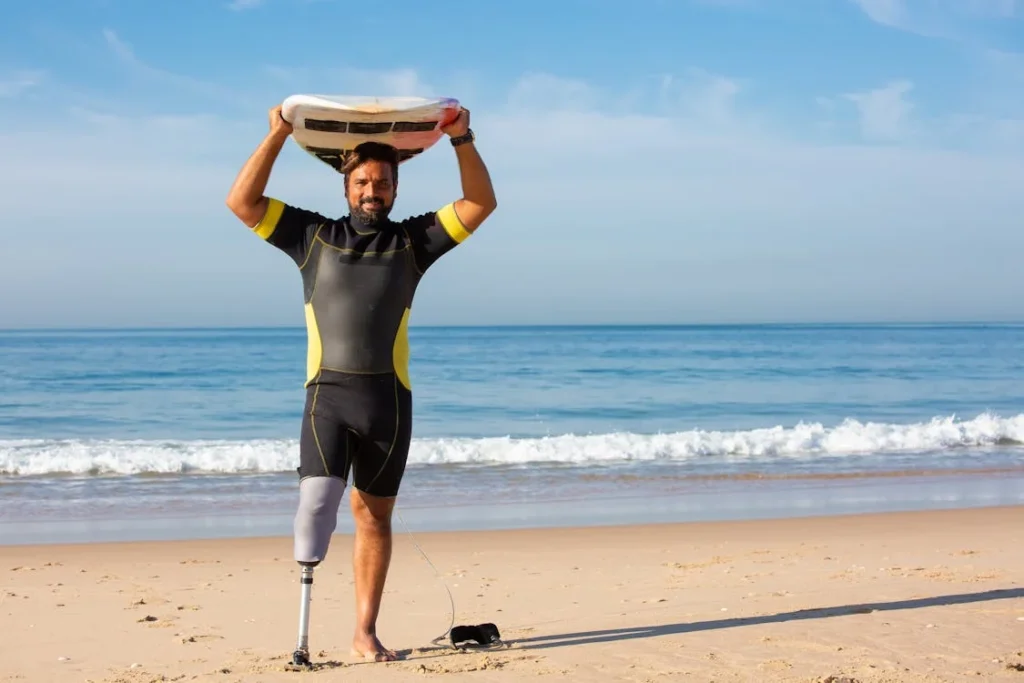
The Connection Between Mental Health and Bone Strength in Amputees
Bone health is often discussed in terms of nutrition and physical activity, but mental health also plays a crucial role. Amputees go through a significant life adjustment, and the emotional stress that comes with limb loss can have a direct impact on bone strength.
Psychological well-being influences everything from hormone levels to motivation for self-care, both of which are critical for maintaining strong bones.
How Stress and Anxiety Affect Bone Health
When the body is under chronic stress, it produces high levels of cortisol, a hormone that can weaken bones over time. Cortisol reduces calcium absorption in the intestines, increases calcium loss through urine, and interferes with bone-forming cells.
For amputees who experience ongoing anxiety or emotional distress, this can accelerate bone density loss, making fractures and osteoporosis more likely.
Stress also affects lifestyle choices. People dealing with anxiety or depression may be less likely to eat well, exercise regularly, or get enough sunlight.
They might turn to smoking, alcohol, or a sedentary lifestyle as coping mechanisms, all of which negatively impact bone health. Breaking this cycle is essential to maintaining overall well-being and preventing long-term bone issues.
Depression and the Risk of Osteoporosis
Studies have shown that individuals with depression are more likely to develop osteoporosis. This is partly due to hormonal imbalances, particularly lower levels of estrogen and testosterone, which play a key role in bone maintenance.
Amputees may be at higher risk if they experience long-term sadness, lack of motivation, or social isolation.
Depression can also reduce a person’s willingness to engage in activities that promote bone health, such as going outside for sunlight, cooking nutritious meals, or participating in weight-bearing exercises. Over time, inactivity leads to muscle loss and weaker bones, making mobility more difficult and increasing the risk of falls.
The Role of Social Support in Bone Health
Having a strong support system can positively affect both mental and physical health. Amputees who stay connected with family, friends, or support groups are more likely to engage in healthy habits.
Positive social interactions can reduce stress levels, encourage physical activity, and provide emotional motivation to take care of the body.
Support groups specifically for amputees can be a great resource. Speaking with others who have faced similar challenges can provide encouragement and practical tips for maintaining an active lifestyle.
Being part of a community can also help reduce feelings of isolation, which is often linked to poor mental and physical health.
Mindfulness and Meditation for Stronger Bones
Practicing mindfulness techniques such as meditation, deep breathing, or yoga can help lower stress and regulate hormones that affect bone health.
When the mind is relaxed, cortisol levels drop, allowing the body to absorb and use calcium more effectively. Meditation also helps improve sleep quality, which is essential for bone regeneration.
For amputees, mindfulness can also enhance body awareness. Learning how to listen to the body’s signals—whether it’s fatigue, discomfort, or emotional distress—can help prevent injuries and ensure that self-care remains a priority.
Simple practices like taking deep breaths before bed or practicing gratitude for what the body can still do can have profound effects on both mental and physical well-being.
The Power of a Positive Mindset
A strong mindset is just as important as a strong body. Amputees who focus on what they can do, rather than what they have lost, tend to maintain better physical health.
Staying mentally engaged, setting goals, and celebrating progress can create a positive feedback loop that encourages healthy habits.
Bone health is not just about diet and exercise—it’s about the entire body working in harmony. When the mind is in a good place, making healthier choices becomes easier, motivation increases, and the body responds by staying strong.
Conclusion
Bone health is a lifelong commitment, and for amputees, it plays an even greater role in mobility, comfort, and overall well-being. Calcium and vitamin D are essential, but so are daily movement, proper prosthetic use, and a positive mindset. Factors like stress, phantom limb sensations, and posture all influence bone strength, making it important to take a holistic approach to health.
By maintaining a balanced diet, staying active, and managing stress, amputees can prevent bone loss and reduce the risk of fractures. Regular medical check-ups, physical therapy, and social support can also make a significant difference in maintaining strong bones and a fulfilling life.
At Robobionics, we believe in empowering amputees with the right tools and knowledge to lead independent lives. If you’re looking for high-quality prosthetics designed for comfort and long-term use, book a free demo of Grippy™ today and experience the difference. For more tips on improving mobility and bone health, contact us for expert guidance on your journey to a stronger future.



